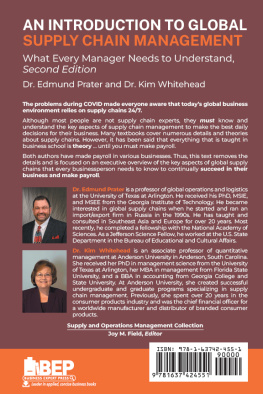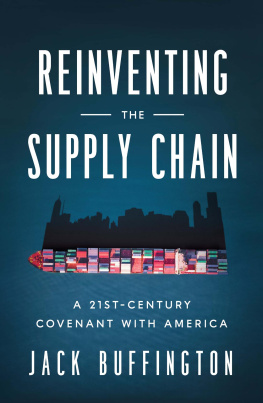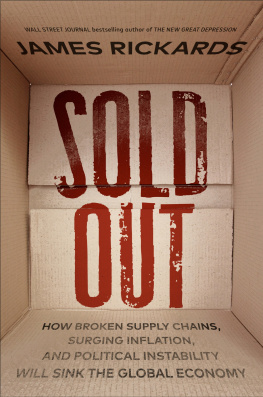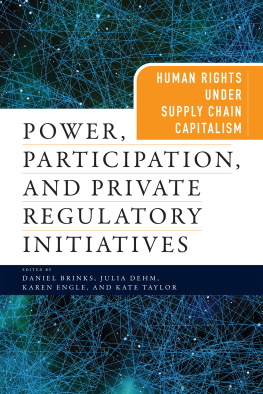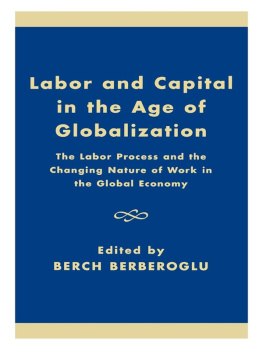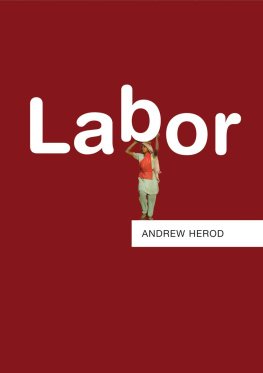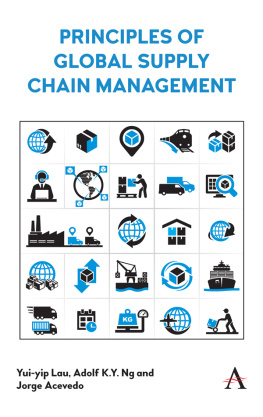The Promise and Limits of Private Power
Promoting Labor Standards in a Global Economy
This book examines and evaluates various private initiatives to enforce fair labor standards within global supply chains. Using unique data (internal audit reports and access to more than 120 supply chain factories and 700 interviews in fourteen countries) from several major global brands, including Nike, Hewlett Packard, and the International Labor Organization's Factory Improvement Programme in Vietnam, this book examines both the promise and the limitations of different approaches to improving working conditions, wages, and working hours for the millions of workers employed in today's global supply chains. Through a careful, empirically grounded analysis of these programs, this book illustrates the mix of private and public regulation needed to address these complex issues in a global economy.
Richard M. Locke is Class of 1922 Professor of Political Science and Management, Deputy Dean of the Sloan School of Management, and Head of the Political Science Department at the Massachusetts Institute of Technology (MIT). His current research focuses on improving labor and environmental conditions in global supply chains. Working with leading firms such as Nike, Coca-Cola, and Hewlett Packard, Locke and his students have been showing how corporate profitability and sustainable business practices can be reconciled. Locke is the author of Working in America (with Paul Osterman, Thomas Kochan, and Michael Piore, 2001), Employment Relations in a Changing World Economy (with Thomas Kochan and Michael Piore, 1995), and Remaking the Italian Economy (1995, 1997). He was awarded the Jamieson Prize for Excellence in Teaching in 2008 and the MIT Class of 1960 Teaching Innovation Award in 2007. Locke was named a 2005 Faculty Pioneer in Academic Leadership by The Aspen Institute.
Cambridge Studies in Comparative Politics
General Editor
Margaret Levi
University of Washington, Seattle
Assistant General Editors
Kathleen Thelen
Massachusetts Institute of Technology
Erik Wibbels
Duke University
Associate Editors
Robert H. Bates
Harvard University
Gary Cox
Stanford University
Stephen Hanson
The College of William and Mary
Torben Iversen
Harvard University
Stathis Kalyvas
Yale University
Peter Lange
Duke University
Helen Milner
Princeton University
Frances Rosenbluth
Yale University
Susan Stokes
Yale University
Sidney Tarrow
Cornell University
For a list of titles published in the series, please see .
The Promise and Limits of Private Power
Promoting Labor Standards in a Global Economy
Richard M. Locke
Massachusetts Institute of Technology
Cambridge University Press
Cambridge, New York, Melbourne, Madrid, Cape Town,
Singapore, So Paulo, Delhi, Mexico City
Cambridge University Press
32 Avenue of the Americas, New York, NY 10013-2473, USA
www.cambridge.org
Information on this title: www.cambridge.org/9781107670884
Richard M. Locke 2013
This publication is in copyright. Subject to statutory exception and to the provisions of relevant collective licensing agreements, no reproduction of any part may take place without the written permission of Cambridge University Press.
First published 2013
Printed in the United States of America
A catalog record for this publication is available from the British Library.
Library of Congress Cataloging in Publication Data
Locke, Richard M., 1959
The Promise and limits of private power : promoting labor standards in a global economy / Richard M. Locke.
p. cm. (Cambridge studies in comparative politics)
Includes bibliographical references and index.
ISBN 978-1-107-03155-5 (hardback) ISBN 978-1-107-67088-4 (paperback)
1. Industrial relations. 2. International business enterprises Management. 3. Globalization. I. Title.
HD6961.L63 2013
331.12042dc23 2012044106
ISBN 978-1-107-03155-5 Hardback
ISBN 978-1-107-67088-4 Paperback
Cambridge University Press has no responsibility for the persistence or accuracy of URLs for external or third-party Internet Web sites referred to in this publication and does not guarantee that any content on such Web sites is, or will remain, accurate or appropriate.
To my mother, Franca Franzaroli, who taught me about the value of work and the dignity of Labor.
Contents
Acknowledgments
Throughout the world, millions of people, both young and old, work long hours, under harsh conditions and for low wages, to make the goods most readers of this book consume every day. These workers citizenship rights are frequently violated, and their health, because of long work hours and hazardous working conditions, is often compromised. This book seeks to understand what, if anything, can be done to promote labor justice for these workers. Through an analysis of several private voluntary initiatives promoted by global corporations, lead suppliers/contract manufacturers, labor-friendly nongovernmental organizations (NGOs), and international organizations such as the International Labor Organization (ILO), this book sheds light on both the promise and the limitations of private power in enforcing labor standards for the millions of people employed in global supply chains. The central finding of this book is that working conditions and labor rights can only be promoted in our global economy through a mix of both private and public regulation. Private voluntary regulation is important in redressing labor abuses in global supply chain factories, but it is not enough. Without the support and legitimacy of government regulation, these private initiatives will produce only limited and often unsustainable improvements. In the chapters that follow, I illustrate how this is already taking place, notwithstanding significant resistance by powerful interests operating at different points of most global supply chains.
This book has a long history. It began ten years ago, through a series of conversations with my then MIT colleague Dara ORourke, while I was working on a teaching case about Nike and alternative conceptions of corporate responsibility. Although I had done work on labor politics before, I had never studied global supply chains and private voluntary regulation. Dara was an excellent mentor, and his enthusiasm for the topic was infectious. Trying to convince global corporations such as Nike to work with me, share their factory audit reports, and facilitate visits to their suppliers was not easy. It took years and many conversations and visits to corporate headquarters. But the time and effort paid off and as a result, what began as a case study evolved over the years into a full-fledged research project involving the collection, coding, and analysis of thousands of factory audit reports; more than 700 interviews with company managers, factory directors, NGO representatives, and government labor inspectors; as well as field research in 120 factories in 14 different countries. As such, the project evolved from a study of one company (Nike) in a particular industry (athletic footwear) to a research project covering several global corporations competing in different industries, with different supply chain dynamics, and operating across numerous country boundaries.


